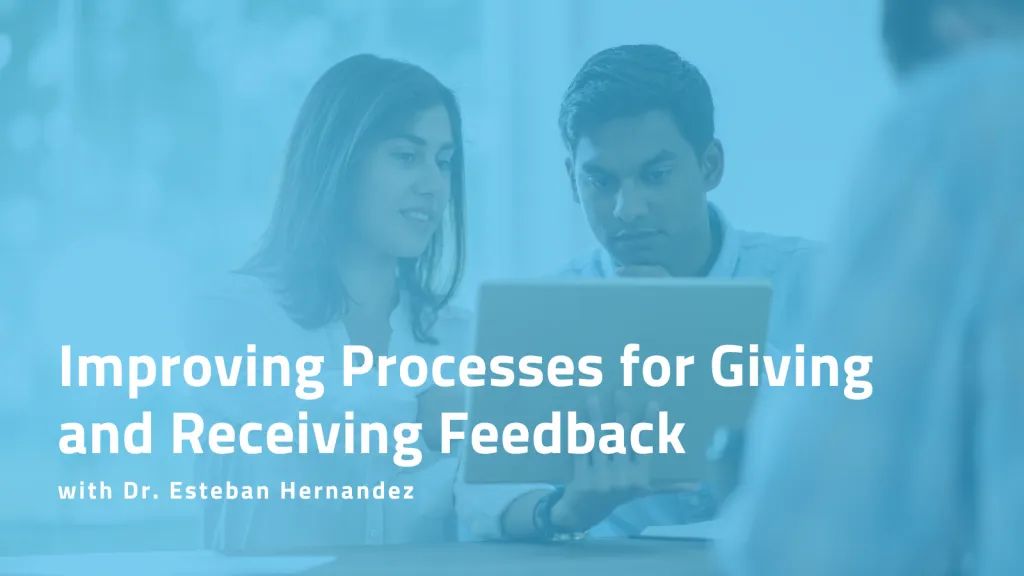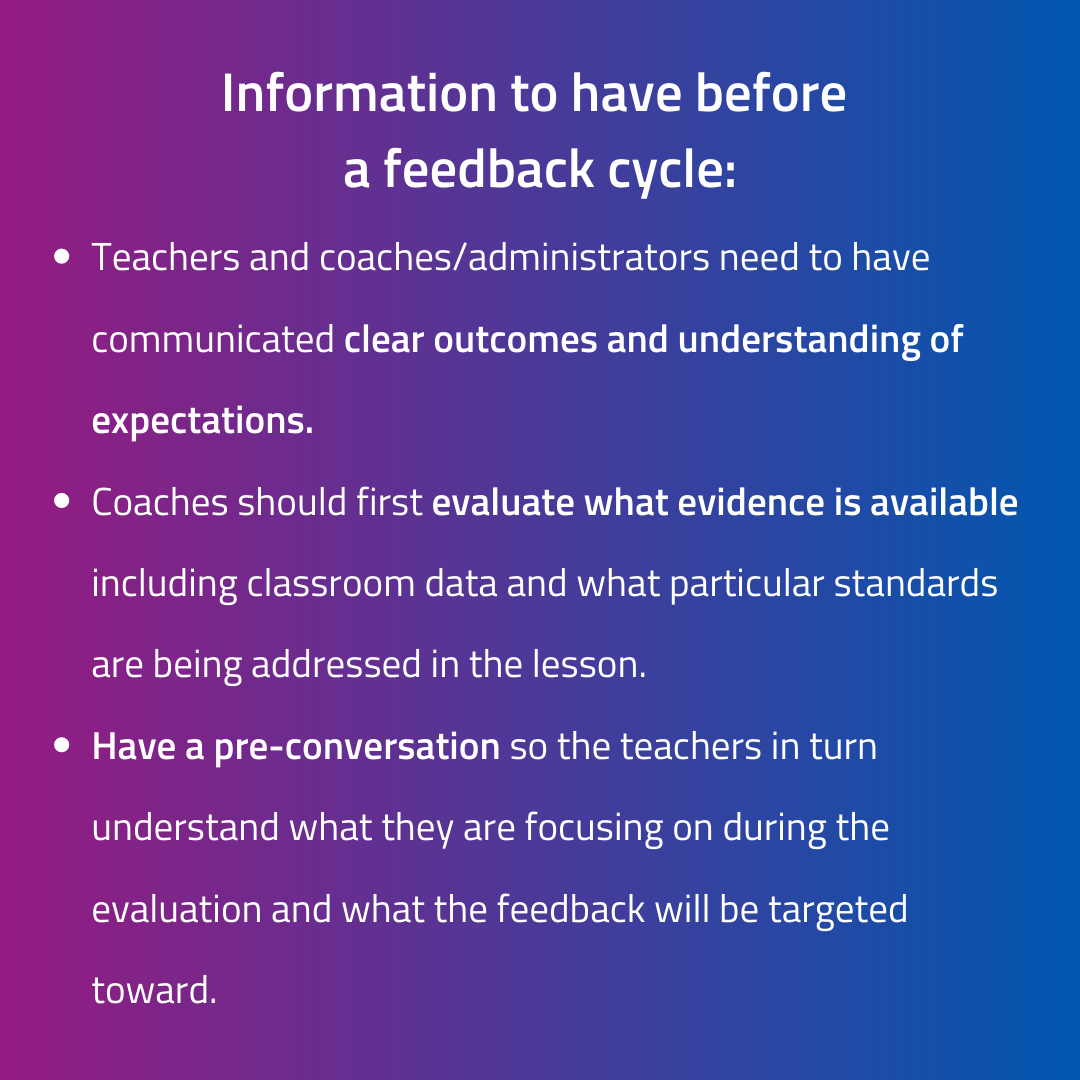Improving Processes for Giving and Receiving Feedback


Improving Processes for Giving and Receiving Feedback
Feedback is a key component for professional growth and development, but it is often difficult to give and receive in a way that ensures educators feel supported and not judged. Dr. Esteban Hernandez of Salinas, CA shares strategies for improving how school leaders can give timely feedback to teachers to improve outcomes for English learners in their classrooms.
Dr. Esteban Hernandez is Director of Research and Accountability for the Alisal Union School District in Salinas, California. He has been an educator for more than 30 years and has served as teacher, school principal and director. As an English learner himself, Dr. Hernández strives to advocate for equity for all students so they can develop English language fluency to penetrate content and succeed as individuals and in future college and career opportunities.
Listen to the full interview here, and find a few main takeaways from the conversation below.
How can we give colleagues feedback in a way that is timely and actionable?
During his dissertation, Dr. Hernandez made a connection between the feedback cycle in schools and the way a coach calls a timeout with their players during a game. He applied this concept of situational coaching to his research on fifth grade students’ reading growth, where coaches would share feedback while the lesson was still in progress.
“The notion was having a coach in the classroom call a timeout, even in the middle of a lesson and say, ‘Okay, let’s give the kids to a pair-share for a moment, because I feel the lesson can be improved if we add this aspect to it, or try brining in this new element to the routine,’” explains Dr. Hernandez.
He found that reading comprehension was higher in the classrooms where these “timeouts” and immediate feedback opportunities had taken place. The key was giving the suggestion when it was still directly applicable and so that teachers could improve the direction that the lesson was going, instead of waiting until an entire lesson was over before learning how it could have been improved.
What characteristics and kinds of information do principals and school leaders need to have and to share prior to beginning an observation and feedback cycle?
Dr. Hernandez places a tremendous amount of value on the importance of empathy and support. When site administrators are engaging with a new teacher that is nervous, for example, they need to know that the principal cares and that they can be vulnerable when they don’t know how to do something. When this empathy lends to vulnerability, then the principal can understand what the teacher needs and can offer tiered levels of support.
Dr. Hernandez also lists several key pieces of information that both parties should have at the start of the feedback cycle:
What foundational elements to a working relationship must be present before feedback can be given and received?
Dr. Hernandez is well-positioned to address this as he focused his research on the relationship between the teacher and an instructional coach. He found that for that relationship to work best, it must be based on certain elements that are part of a healthy relationship.
“That healthy relationship is based on trust and open and transparent communication. And that can only happen if the person is able to recognize their own areas of strength and their own areas of weakness and not be threatened by the feedback obtained,” Dr. Hernandez shares.
He adds that while the relationship between a coach and teacher is more at a colleague level compared to a teacher and administrator as more of a supervisory relationship that can potentially feel more intimidating, with these tenants of trust and open communication the feedback can still be supportive and a positive experience for all. Most importantly, all feedback participants can ground in the purpose of the interaction.
“My purpose as a coach is to help someone improve, so that feedback is meant to help someone improve as well. Evaluation sometimes appears to be something considered punitive in nature, but in the end, it's to help someone improve their craft.”
Originally from Puerto Rico, Dr. Hernández graduated from the UPR with a BA in Elementary Education with an emphasis on teaching English to Spanish speakers. He holds an M.A with emphasis in curriculum and instruction, and a PH.D. in Educational Leadership with research dissertation titled: "The Influence of In-Situational Coaching on the Reading Achievement of English Learners in Fifth Grade."
Episode resources:
- Download the full episode transcript here
- Connect with Dr. Hernandez on LinkedIn
- Read Street Data by Shane Safir and Jamela Dugan
